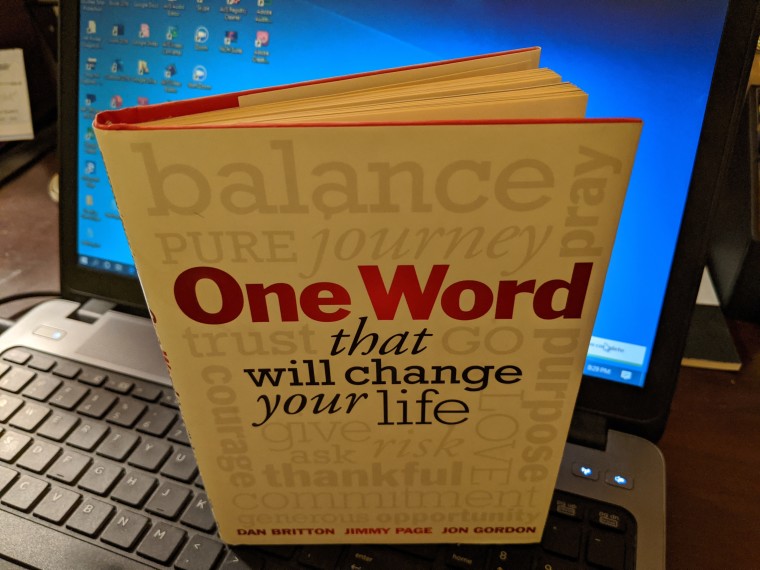
Finding Your Groove With Kathleen Thompson
Kathleen Thompson
Dedicated to the art of living today while creating tomorrow. The podcast is for those who yearn for a life of adventure and significance, or are navigating through a transition. Hear tips on tuning mind and body, finding your rhythm and developing your unique voice. Kathleen uses music and the arts to communicate a message of joy, hope, and life transformation.
- Episode #137: Emotional Intelligence – How to Use Your Imagination for Good
We humans have an amazing capacity to imagine a future and then create it. How often does our imagination run amok? Imagining the worst-case scenario. One that’s hardly likely to happen. Is there a way to channel that creative imagination for good? Yes. That’s what we’re talking about on this episode.
(c) AdobeStock Photos
Play Episode
| Subscribe in iTunes | Subscribe in Stitcher
On This Episode
Rhythm of Life – Door or Doormat?
Feature Segment – Emotional Intelligence: Use Your Imagination for GoodToday’s Quote
I saw the angel in the marble and carved until I set him free. -Michelangelo
Rhythm of Life – Door or Doormat?
In an online forum about creativity, some of us had a discussion about generosity. The premise was that if you share your creative work from a place of generosity, you don’t attach so much expectation to it. It won’t be as scary.
Your creative work can be a door for someone who engages with it. It can open a door to their heart. A new way of thinking. Maybe even a new life.
And…you can be a doormat.
Listen to the episode to hear about the key difference between a creative door and doormat.
Resources
Give and Take – Adam Grant
Boundaries – Henry CloudFeature Segment: Emotional Intelligence – Use Your Imagination For Good
You know how in Episode 136 we talked about grief – that we’re experiencing shared grief right now, even if our experience isn’t the same? We talked about comparative suffering, and how not to fall into that trap? And then I promised to share some strategies for living while you’re experiencing grief? Today’s the first of those episodes.
We humans are amazing. We can imagine a future – that’s dangerous, scary, fun, or exciting. And not only that: we’re able to create it for ourselves. Unfortunately, we often spend that imagination on the worst-case scenario. Whether we’re conscious of it or not.
Because of the coronavirus, we’re on heightened alert. Stress response kicking in big time. And that includes imagining all kinds of disaster. Not only that, but the media is adding fuel to that fire.
“The virus will come back in the fall, and be worse than ever.” –Do they know that for sure?
“It will take years for the economy to come back.” –Again, how do they know that?In one way, this pandemic is already the worst-case scenario. And here’s the thing: when actually faced with our worst nightmare becoming reality, we’re better able to face it than we imagine we will.
How can we focus our imagination on an amazing future, instead of a living hell? How can we develop emotional intelligence in this situation?
- Practice being present. See, feel, touch, taste, hear. Right here and now.
- Channel your imagination by following your curiosity and asking questions.
- Do what only you can do.
Listen to the episode for specific strategies for focusing your imagination.
Resources
Nothing’s the same as it was. Things won’t be the same later either. It will take new practices and habits to carry you forward into the unknown new world. A world that only exists in your imagination right now. Why not turn it into one you want to live in? Something amazing. Leave a comment if you’d like to share what you’d like to create with your imagination.
Your fertile imagination can picture a positive future or worst-case scenario. Why not choose to imagine the positive?
Click To TweetEmotional Intelligence Series
132 – The New Success Superpower
134 – Communicating in Crisis
135 –Living in Uncertainty
136 – Let’s Call This What it Is
The post Episode #137: Emotional Intelligence – How to Use Your Imagination for Good first appeared on Kathleen Ann Thompson.
6 May 2020, 3:30 am - Episode #136: Emotional Intelligence – Let’s Call it What it Is
How big is your emotional vocabulary? The average is 3 words: mad, sad, and glad. One hallmark of Emotional Intelligence is the ability to identify and handle a wide range of human emotions in yourself and others. On this episode we talk about that, and specifically relating to how we’re feeling right now in the midst of a pandemic.
Play Episode
| Subscribe in iTunes | Subscribe in Stitcher
On This Episode
Rhythm of Life – Is Rest a 4-letter Word?
Random Riffs – Do I Sound Like I Could Sing Stairway to Heaven?
Feature Segment – Emotional Intelligence: Let’s Call it What it IsToday’s Quote
No one ever told me that grief felt so like fear. –C.S. Lewis
Rhythm of Life – Does Rest Have to be a 4-Letter Word?
Rest. You know that thing we do when we’re tired? Whether it’s mentally, emotionally, physically? Why is rest a 4-letter word? It feels like it my house. And yet rest is as important as air and water. Even though less urgent.
Do we make time for rest? Do we make time for the other important non-urgent things in our life? Often not. We often go from fire to fire, never taking the time we need for what we say is so important.
It’s time to change that. It’s time to make time for what’s important.
Random Riffs – Do I Sound Like I Could Sing Stairway to Heaven?
I’m on summer break in college, singing in a club. I just finished Joni Mitchell’s “Big Yellow Taxi” on my acoustic guitar, and a guy comes up to me and asks if I can play “Stairway to Heaven”.
What about singing Joni Mitchell made him think I could possibly sing Stairway to Heaven? Nothing. Because he didn’t hear what I actually sounded like. He heard what he wanted to hear.
We often hear what we think we hear; not what’s actually said. We see what we think we see; not what’s actually there.
Feature Segment: Emotional Intelligence – Let’s Call it What it Is
According to two researchers into human emotions and behavior, Brene Brown and Marc Brackett, many of us have a three-word emotion vocabulary: mad, sad, and glad. When there are actually something like 39 different emotions you or I could be feeling at any one time.
A hallmark of Emotional Intelligence is the ability to identify and name emotions with precision. Then express and regulate them in ourselves and others.
Resources to help with identifying emotions:
Brene Brown’s Podcast – Unlocking Us with Marc Brackett
Marc Brackett’s book – “Permission to Feel”.
One with emotional intelligence understands this and trains just as you’d train for anything else. With this training, you develop your Emotional Intelligence. Become a more successful and empathetic leader. Make better decisions. Unleash your creativity.
It’s especially important right now. We’re experiencing collective grief. For some, it’s mild. For others, it’s profound. And yet we often don’t have a language for grief any more than we have a language for other emotions. On this episode we talk about a language for grief. So you can
- Identify and label it as what it is.
- Express it and incorporate it into your life without it taking over.
- Live and lead through this pandemic with hope and even joy.
In Episode 135, we talked about how dangerous comparative suffering is. Dr. Marc tells us to give ourselves permission to feel. Whatever it is.
Acknowledging emotion is an act of strength, not weakness. Then you get to decide what comes next.
What language can we use for grief? Elizabeth Kubler-Ross and David Kessler wrote a book called “On Grief and Grieving”. In it they defined 5 stages of grief. These are not sequential, and yet calling them stages feels like that’s what they are. So I’m calling them the 5 manifestations of grief. You could feel more than one at a time, and could alternate between them on any given day or week.
Denial – this can’t be my life.
Anger – this shouldn’t be my life. I didn’t ask for this.
Depression – I can’t take this.
Bargaining – I could or should have prevented this
Acceptance – I can live with this.Remember: this is not a roadmap. It’s a language to describe how you feel. So if you’re feeling it now, call it what it is. Recognize which emotion you’re feeling. Understand it. Label it. That way you can express it and begin to regulate it.
Grief can be your companion, instead of your controller.
Understanding grief is an important piece of the Emotional Intelligence puzzle. Especially now. You, someone in your family, or someone on your team may be acting out of grief and not see it.
Don’t tighten against the pain. Feel it and breathe into it. Because emotions are a beautiful thing. They are what allow us to experience beauty. Love. Kindness. Color. If you try and cut off the bad, you’ll also cut off the good. Instead, why not use them strategically?
No matter what you’re feeling right now, it is certain to change. So, know what you’re feeling. Learn to channel it. And you’ll develop greater Emotional Intelligence. What are you feeling right now? Leave a comment.
Grief can be your companion instead of controller.
Click To TweetEmotional Intelligence Series
132 – The New Success Superpower
134 – Communicating in Crisis
135 –Living in Uncertainty
The post Episode #136: Emotional Intelligence – Let’s Call it What it Is first appeared on Kathleen Ann Thompson.
22 April 2020, 3:30 am - Episode #135: Emotional Intelligence – Living and Leading in Uncertainty
The world has turned upside down. Some of us are fighting a very real battle every day. And some are practicing social distancing to help in the cause. We’re all feeling it in one way or other. The world looks very different from how it did a few short months or weeks ago. So now what? Is it okay to grieve? And if we do, then what? That’s what we’re talking about on this episode – how to live and lead with uncertainty.
(c) Photo by Sasha Freemind on Unsplash
Play Episode
| Subscribe in iTunes | Subscribe in Stitcher
On This Episode
Music resources to help encourage and lift you up.
COVID-19 Quarantine Spotify Playlist
Feature Segment: Emotional Intelligence – Living and Leading in Uncertainty
We’re all feeling it. That sense that the world has just turned upside down. And also maybe feeling guilty for feeling this way, if we’re not on the battlefield or immediate support team. It’s kind of like survivor’s guilt. They sacrifice every day and we’re on the couch? All we have to do is stay home? What’s big deal?
Brene Brown and mental health professionals call is Comparative Suffering. Brene talks about it in one of her recent podcasts.
Comparative suffering doesn’t do you any good. And let’s face it. There are undoubtedly people suffering more than you right now. And less than you too.
Now that we’ve acknowledged that, let’s get on to the real point of this episode. This is a big deal. To all of us. Here’s why:
- Worry
- Helplessness
- Economy
- The worst? Randomness, uncertainty. Bad things happen to good people. With no apparent reason.
We often live as though that isn’t true. We live as if we’ll never die. When faced with the truth, it’s easy to collapse or harden ourselves.
Once you see this truth, you can’t unsee it. Once you know, can’t unknow. Your innocence is gone. So now what?
To live and lead with emotional intelligence right now in time of worldwide uncertainty, the most important thing to do is to hold two apparently contradictory truths simultaneously:
- We have an amazing capacity to affect change for good
- Much of what happens in the world is outside of our direct control
Actions you can take today:
- Connect with what IS certain. Whatever that is for you. Seasons change. God’s love.
- If leading, state what isn’t known, and what is. Create certainty within the uncertainty. A belief in something that doesn’t change.
Let yourself feel what you feel. Don’t fall prey to comparative suffering. Grieve the loss of freedom and also innocence. And then decide you want to thrive in uncertainty. Start by building foundation on what is true and unchanging. Like God’s love.
Is there any music you’re listening to right now that encourages you? Leave a comment.
To thrive in uncertainty, build your foundation on what is certain.
Click To TweetThe post Episode #135: Emotional Intelligence – Living and Leading in Uncertainty first appeared on Kathleen Ann Thompson.
10 April 2020, 3:30 am - Episode #134: Emotional Intelligence – Communicating in Crisis
What happens when things change, are challenging, or even become a crisis? We often hunker down, avoiding each other. Yet, it’s exactly in these times that someone with emotional intelligence will communicate more rather than less. Here’s how to navigate the times of difficulty and communicate with honesty and empathy.
(c) AdobeStock Photo
Play Episode
| Subscribe in iTunes | Subscribe in Stitcher
On This Episode
Rhythm of Life – Opportunity Often Comes in a Problem Package
Random Riffs – Waiting for the Other Shoe to Drop
Feature Segment – Emotional Intelligence: Communication in CrisisToday’s Quote
The most important thing in communication is hearing what isn’t said. –Peter Drucker
Rhythm of Life – Opportunity Often Comes in a Problem Package
It’s almost midnight. I’m working on computer. I just can’t seem to get caught up. And now this: an email comes in from my voice teacher’s assistant with a message from him. The gist was this:
We’re going to have a TedX-type event at our workshop at month end. I’m SURE you have a topic, outline, or even a talk you’ve prepared. We’ll help you flesh it out to a killer talk. Have it submitted by Sunday.
Uh. No. I don’t have any of that. So I start to panic. Listen to the episode to hear what I did.
Random Riffs – Waiting for the Other Shoe to Drop
It’s been a strange winter in New England. We’ve had almost no snow. We’ve had some days that are more typical of mid-April than February or March.
And some of us couldn’t simply enjoy the day. No, instead we had to worry that the other shoe was going to drop. That somehow this great weather would be offset by a disaster of monumental proportions. What does that say about our worldview? Listen to hear what else I have to say about that.
P.S., I created a Spotify Playlist to listen to while you’re at home practicing Social Distancing. Here’s the link if you want to listen. Email or leave a comment if you have any suggestions for additions.
Feature Segment: Emotional Intelligence – Communication in Crisis
An article in Inc. Magazine has this as the headline: “Bill Gates and Elon Musk Just Issued Very Different Responses to the Coronavirus. It’s a Lesson in Emotional Intelligence.” It’s written by Justin Bariso.
Elon Musk tweeted: “The coronavirus panic is dumb.” His comment was literally correct, and yet doesn’t display emotional intelligence.
Bill Gates wrote a blog post that included this: “In the past week, COVID-19 has started to behave a lot like the once-in-a-century pathogen we’ve been worried about. I hope it’s not that bad, but we should assume that it will be until we know otherwise.”
Gates’ comment displays emotional intelligence because he shows the ability to balance emotion and rational thought.
Communicating in Times of Change
We’re all wired for stories. What you may not realize is that if someone doesn’t tell us what’s going on, we’ll actually make something up. Speculate. And that takes on a life of its own.
I’ve seen it all the time in my own career.
Emotional Intelligence compels leaders to communicate even when there’s not much to say. Or even when there’s nothing to say.
It’s also important to note that whatever you say must be true.
Communicating in Times of Crisis or Challenge
Now how you communicate matters at least as much as what you communicate. Here’s where empathy matters. Don’t minimize how they feel. Bill Gates didn’t.
One thing that doesn’t work is to tell people to calm down. You have to help calm them without saying it.
What if you’re not a leader?
It doesn’t matter. These principles apply with your family, friends, or team. In a conversation about the COVID-19 virus. Or any other challenge.
An excellent example of emotional intelligence in crisis communication is Walter Cronkite announcing that President Kennedy has been shot. Click here to see it.
So talk, even when you don’t want to. Listen and understand. Choose empathetic and rational words. Watch how you talk. Could make all the difference.
Emotional Intelligence is knowing when and what to communicate – especially when it matters most.
Click To TweetEmotional Intelligence Series
#132: Emotional Intelligence – the new Superpower
The post Episode #134: Emotional Intelligence – Communicating in Crisis first appeared on Kathleen Ann Thompson.
17 March 2020, 3:30 am - Episode #133: Afformations
Have you ever tried positive affirmations, thinking they would help you think your way to a new life? And it didn’t work? On this episode, we’re talking about what’s more powerful than affirmations to make change happen. How to use what our mind naturally does to help us succeed at what’s most important to us.
(c) Kathleen Thompson
Play Episode
| Subscribe in iTunes | Subscribe in Stitcher
On This Episode
Rhythm of Life – It’s Perfect. NOT.
Random Riffs – What’s it For?
Feature Segment – My Self-Improvement Experiment — AfformationsToday’s Quote
Positive thinking will let you do everything better than negative thinking will. –Zig Ziglar
Rhythm of Life – It’s Perfect. NOT.
I’m standing in my voice teacher’s studio, playing the recording of one of my latest songs. We worked like crazy on this at the previous lesson, and I want him to hear what I did with it.
“Hmmmmm. Good. A little too much vibrato there. Oh and there. Can you try to get rid of the vibrato on some of those held out low notes?”
Uh no. I can’t.
“It’s done,” I say. Final production, mixing. Everything. It’s done. No more changes.”
“Well then, it’s perfect,” he says.
It’s not perfect. We both know it. But he told me a while back that I’ll have to call it done at some point. That no singer is ever satisfied with their performance. They always want one more take.
I’m making the best art I can right now. Writing the best songs, singing the best, doing the best podcast I can. Right now. That won’t be my best 3 months from now. Or 6 or 12 months from now.
It won’t be your best work either. So, get used to it.
Random Riffs – What’s it For?
I was thinking today about cynicism. How we hear something great, and immediately look for the dirty secret just under the surface.
And you know what? None of us has 100% pure motives. That’s okay. It doesn’t mean we’re evil or wrong, or what there’s a dirty secret under the rocks. It just means we’re human.
Because we CAN commit to a cause bigger than us. We can sacrifice ourselves for the greater good. We can. Even when we want to be seen, noticed, respected, or even loved.
It’s better to do good with mixed motives than to do nothing until you make sure your motives are completely pure.
Feature Segment: My Self-Improvement Experiment – Afformations
Positive affirmations. They’re often touted as a way to make massive change happen. Because if you change your mind, you change your life. If you change your script, you change your life.
The change looks like this: Speak -> Change Your Mind -> Change Actions -> Change Results. As you can see, the affirmations start the process, according to this line of thinking.
Your life becomes a reflection of the thoughts you consistently think.
But here’s the thing. They don’t always work. Sometimes they don’t even work at all.
According to St. John, there’s a Belief Gap between where you are now and where you want to be. If you can’t believe you can get there, you won’t. Until you bridge the belief gap for the outcomes you want, it will be difficult to make the leap to reach the new life and create your new reality. (Remember The Big Leap? –Gay Hendricks even goes so far to say that we’ll subconsciously do things to undermine our desired result.)
When we use positive affirmations, our minds often say, “Yeah, right!” And that does nothing to bridge the belief gap.
If statements don’t work, then what does? Questions. So Noah St. John uses the power of questions to make change happen. He calls these questions Afformations, and uses them to bridge the gap.
Listen to the episode to hear just what type of questions these are, what questions not to ask, and how to use these questions in your life.
Keep this in mind though – the questions aren’t what changes your life. Action is what changes your life. Afformations prime the pump so you are ready and willing to take action.
Key lessons from this book:
- When you want something and don’t believe you can have it, what will your actions be? Half-hearted at best, which doesn’t lead to success.
- In order for Afformations to work, you need to internalize them. The best way is through listening.
- Fear is defined as “the anticipation of pain”. This definition works for fear in light of actual danger, as well as fear in the face of perceived danger that doesn’t exist.
How did the Action Steps work? -I’m not sure yet. It’s going to take time to internalize my new Afformations. I did find that doing them was powerful already. They built on each other throughout the book.
What I’m going to do next:
I’m going to combine the conclusions from Marie Forleo’s book Everything is Figureoutable and this book to create one big plan. And use Afformations and prayer to help me move forward with my plan. I think the two books together are more powerful than either was alone. And combined with The Big Leap for context? Amazing.
What can you do?
- Get the book
- Write your own Afformations and record them.
- Listen to them at least once a day. Speak them out loud too.
- Start taking action and watch what happens.
Let me know in the comments what you’re choosing to do as a result of listening or reading.
What does a 3 year-old do that we can learn from? They keep asking WHY.
Click To TweetP.S., The other day I wrote a song based on a poem written by a friend. It’s dedicated to those who lost loved ones in the Milwaukee shooting last week. We must make a stand against violence and choose love. Here’s the song on YouTube. Please share it with your friends.
Self-Improvement Series
127 – Series Introduction
128 – Everything is Figureoutable
130 – My One Word Review
131 – Everything is Figureoutable Part 2NOTE: If you buy a book through one of my links, I’ll make about $.10.
The post Episode #133: Afformations first appeared on Kathleen Ann Thompson.
5 March 2020, 12:41 am - Episode #132: Emotional Intelligence – The New Success Superpower
Financial acumen, programming, storytelling, empathy. All traits people tell us are or were a success superpower. On today’s episode, we explore a superpower that is stronger and more comprehensive than all of them put together: Emotional Intelligence.
(c) AdobeStock Photo
Play Episode
| Subscribe in iTunes | Subscribe in Stitcher
On This Episode
Rhythm of Life – The First Big Test of my 2020 Word “Believe”
Random Riffs – What if You Could Choose Your Own Groundhog Day?
Feature Segment –The New Success SuperpowerToday’s Quote
The artist is a receptacle for emotions that come from all over the place: from the sky, from the earth, from a scrap of paper, from a passing shape, from a spider’s web. –Pablo Picasso
Rhythm of Life – The First Big Test of my 2020 Word “Believe”
It’s Sunday morning, and I’m praying. I have a mental picture of me worshiping God in the midst of millions or billions of people. I feel completely invisible.
Except that God tells me I’m not. He sees me and loves me just as I am. I believe it in my head. It doesn’t seem to reach my body.
So here’s the first big test of my 2020 word – believe. Can my belief extend all the way to my heart? My full body? The answer to that has physical and emotional implications.
Have you already been tested with your 2020 word? I guess we should expect it, right? Growth means stretching beyond where we’ve been before. Testing is part of the process.
Random Riffs – What if You Could Choose Your Own Groundhog Day?
We just had Groundhog Day in the US. That day just happened to also be the Super Bowl. And Jeep aired a commercial that redid parts of the movie Groundhog Day with Bill Murray and others. And THAT got me thinking….if I could repeat any one day over and over, what would it be?
I thought of a few possibilities and settled on one that might surprise you a bit. Listen to the episode to find out more.
If you could repeat any one day again and again, what would you choose? Leave a comment.
Feature Segment: The New Success Superpower
We’ve all seen them – articles about “the one thing Warren Buffett looks for that determines success”. “Crack the success code with this one thing.” “Do this for massive success.”
Over the years, people have touted different skills as the new superpower for success: financial acumen, programming, collaboration, agile, grit, abundance, empathy. All are great. I think ever greater, is this – Emotional Intelligence.
Emotional Intelligence, or EI, includes more than empathy. That’s what makes it a superpower. And we’ll discuss different facets of Emotional Intelligence in a series alternating with our Self-Improvement Experiment Series.
Six dimensions of EI are discussed in Richard Davidson and Sharon Begley’s book “The Emotional Life of Your Brain”. Because we can have unique combinations of these 6 dimensions, they call it our Emotional Style.
- Resilience
- Outlook
- Social Intuition
- Self-Awareness
- Sensitivity to Context
- Attention
Is EI really that important? And if so, why? Well, work has been evolving over time. We’ve had 3 different models thus far:
Model 1.0: Command and control. Army, Nobles vs. Serfs, Dictator, Factory model. It’s all about compliance and order.
Model 2.0: Carrots and sticks. It seems to give people a choice. But when you look at it, it’s rewarding the worker if they do what those in power want, and punishes them if they don’t. It’s really a disguised version of command and control. Dan Pink talks about this in his book Drive.
Model 3.0: Internal motivation – autonomy and interdependence. An entrepreneurial way of operating. Creativity, working together, agile teams. This model depends on enough people exercising emotional intelligence. Those who do will be more successful in Model 3.0.
Your actions:
- Remind yourself that EI is a success superpower. However you choose to define success.
- Think about definition of EI: the capacity to be aware of, control, and express one’s emotions, and to handle interpersonal relationships judiciously and empathetically. Ask yourself this question: how can I further develop this skill? And then don’t actively think about it. Just let your mind do the work.
This hasn’t come natural to me. It’s a skill we each can and should learn. I keep working on it. Because Emotional Intelligence is the new success superpower. What do you think about Emotional Intelligence? Do you think it’s the new superpower, or not? Leave a comment.
Emotional Intelligence is the new success superpower.
Click To TweetNOTE: If you purchase a book from a link, I’ll make about $.10.
The post Episode #132: Emotional Intelligence – The New Success Superpower first appeared on Kathleen Ann Thompson.
18 February 2020, 4:30 am - Episode #131: Everything is Figureoutable Part 2
Is everything really figureoutable? And haven’t we already talked about it? Yes and yes. This book by Marie Forleo was so good that I wanted to share what I learned in the second half. After you listen, why not buy the book and try this yourself? No matter where you are in life, if you’ve got something you’re trying to figure out, or can’t seem to get done, practicing the Everything is Figureoutable principles can help you get and keep moving.
(c) AdobeStock Photo
Play Episode
| Subscribe in iTunes | Subscribe in Stitcher
On This Episode
Rhythm of Life – Where’s the Song?
Random Riffs – Batching Revisited
Feature Segment – Everything is Figureoutable, Part 2Today’s Quote
There is a wisdom of the head, and a wisdom of the heart. – Charles Dickens
Rhythm of Life – Where’s the Song?
“Why not make some 5-minute art about that?” That’s something my friend Sam Bennett says a lot. She explained it in her book “Get it Done – From Procrastination to Creative Genius in 15 Minutes a Day”
So now I’m on a group call with Sam and 5 other women. Describing the frustration of my creative work not working.
This time she didn’t suggest making 5-minute art. This time, she asked “Where’s the song?” She wanted me to practice the thing that was frustrating me to express how I felt. Get back on the horse, so to speak.
You can hear what I wrote and what I learned by listening to the episode.
So, where’s your song? Or whatever you make? The world needs more of it.
Random Riffs – Batch It Revisited
You know how on Episode 130 I talked about how I batched my cooking, and that you could use this method to get more done with any project?
Well, this segment isn’t called Random Riffs for nothing. Because sometimes random thoughts just pop into my head. Like the song that you can hear when you listen to the episode.
It’s good to find the humor in almost anything. And, I guess I have a lot of dishes to wash.
Feature Segment: Everything is Figureoutable, Part 2
It’s all about love. That’s the letter my 100-year-old self wrote to my present self as part of an exercise in Marie Forleo’s book Everything is Figureoutable. Marie asked me to go to a quiet place, get comfortable, set the timer for 15 minutes, and allow my hand to move on the paper without thinking, editing, or stopping.
Now I’ve done this before. It’s similar to Morning Pages, an exercise taught by Julia Cameron in The Artist’s Way.
Marie’s exercise is similar but not exactly the same. Listen to the episode to hear what Marie recommends and how it turned out when I tried it. And if you want to hear my commentary on the first half of Marie’s book, listen to Episode 128.
Anyway, what my 100-year-old self wrote to my present self was all about love. I really had no idea what was going to come out. I prayed before I started. And that’s what materialized on the paper as I wrote without thinking, editing, or stopping.
I can’t even begin to describe how powerful this was for me. To see these words and read them back out loud. I know I said this about the last episode with another exercise, but this one alone was worth the price of the book.
So was this one, called “What I really want is…” It’s meant to be done over 5-7 days, I did it for 9. And had some interesting observations after completing it.
- What I wrote was influenced by how I was feeling at the time.
- Even so, there were still some themes that consistently stood out.
After reviewing the primary themes, I wrote a summary with an analysis of my conclusions. Listen to the episode to hear what they are.
My analysis of this exercise:
- Its power lies in your willingness to be honest.
- Even for someone like me who is multi-passionate, and cares about a lot of causes, you can eventually see trends/theme if you keep at it.
- It’s important to use both your mind and heart to discern what’s right for you. .
If you’re willing to do the hard work, using both your mind and heart, get Everything Is Figureoutable. Don’t just read it. Do the “Insight to Action” challenges. Because power isn’t in knowing. Power is in doing.
Now, you and I are still limited by our own beliefs. We can’t simply chant positive affirmations to get ourselves to believe a different truth. That’s where next book comes in: Afformations.
I’m just about to start reading it now. When I get far enough along to evaluate it for you, I’ll include it in an episode. In the meantime, if you have a book recommendation, send an email to [email protected], or leave a comment.
Everything Is Figureoutable. It’s a great attitude to have in 2020, and beyond..
Power isn’t knowing something. Power is doing something.
Click To TweetSelf-Improvement Series
127 – Series Introduction
128 – Everything is Figureoutable
130 – My One Word ReviewThe post Episode #131: Everything is Figureoutable Part 2 first appeared on Kathleen Ann Thompson.
4 February 2020, 4:30 am - Episode #130: My Annual One Word Review
Can you actually summarize the year with one word? Not really, but you can have a theme for the year that’s one word. That’s what we’re talking about on today’s episode. How my 2019 One Word impacted my life in ways I never would have imagined. And how you can do it yourself.

Play Episode
| Subscribe in iTunes | Subscribe in Stitcher
On This Episode
Rhythm of Life – Batch It
Random Riffs – Inside-the-Box Creativity
Feature Segment – My Annual Review in One WordToday’s Quote
I do not have one theme for each season, I just try to make beautiful clothes all year round. – Oscar de la Renta
Rhythm of Life – Batch It
I had a ton of food in the fridge just waiting to be turned into something delicious. And, on Monday morning, I made 2 kinds of muffins, Irish stew, butternut squash soup, and chicken. Whew!

(c) Kathleen Thompson
What’s so great about making all this at once? It’s batching. It’s a great way to get more accomplished. Listen to the episode to hear the benefits and some tips on how to do it.
How might batching your work benefit you? Leave a comment.
Random Riffs – Inside-the-Box Creativity
So many people say, “Let’s think outside the box.” They think that’s where all the creative thinking lies – outside the box. But what if that isn’t actually true? In this segment I talk about a study that was done with children on a playground, and comments by a famous music producer, Bob Clearmountin. Here’s a link to his interview if you want to listen to the whole thing. The part I’m referring to is about halfway through.
Bob gives an example of a song that used the technique he described. Here’s the link to that song. .
Do you have any examples of your own inside-the-box creativity? If so, please share in the comments or on my Facebook page. I might even share them in an uoming episode.
Feature Segment: My Annual One Word Review
At the beginning of every year, I do the One Word exercise that comes from Jon Gordon’s book called “One Word That Will Change Your Life”.
That One Word is my theme for the year. Something I want to focus on. Embody.
For 2019, my word was SING. I talked about it in Episode 107.
I had no idea what would happen when I chose this word. That’s the beauty of One Word. It gives guidance and doesn’t try and control the results. Not only that, but it’s easy to remember.
So what happened in 2019?
- Through my experience at a singing workshop with my voice teacher, I ended up writing and recording songs with a co-writer. I’m on my way to completing an album.
- I started putting some Psalms to music so I could sing them at my own piano. Our church ended up doing a sermon series on Psalms, and I wrote 6 more that went with the day’s theme, and taught the congregation to sing them.
- My voice showed significant improvement
- I made decisions based on whether or not the choice made my heart sing.
There’s a lot more to the story, which I describe on the episode. And there’s still plenty of room for growth in every one of these areas. But it’s time to celebrate just how much my word SING changed my life.
Heard some of story in pieces throughout 2019. Pull together in one cohesive view of 2019 through the lens of SING.
In a sense, much of this was a complete surprise. I didn’t plan to write this many songs, or professionally record them. I was just writing to see if I could do it, and to worship. So what happened was a surprise.
At the same time, it wasn’t. Because I was prepared for something to happen. My mind and heart were open. Ready. Watching for opportunity. And taking action when it appeared. All because I had my word in my mind.
Imagine what this practice could do in your life! Something amazing, I’m sure. You might want to get the book and try it for yourself. I’ve been doing it since 2013. It’s so powerful, that I’ve already chosen my word for 2020:
Did you do One Word for 2019? If so, why not look back on the year and see what happened as a result of focusing on that theme? If didn’t do this, no worries. You can do it for 2020. .
Pick a word. Meditate on it. Watch what happens.
One Word can be more powerful than all your goals.
Click To TweetSelf-Improvement Series
127 – Series Introduction
128 – Everything is FigureoutableThe post Episode #130: My Annual One Word Review first appeared on Kathleen Ann Thompson.
21 January 2020, 4:30 am - Episode #129: My Year End Review
You know, I always hated the end of year performance evaluations I did on myself and my team. The format was so restrictive. It didn’t really tell the whole story. So this year, I turned the annual review on its head. I tried it on myself, and thought I’d ’hare it with you. You might want to try it yourself.

Play Episode
| Subscribe in iTunes | Subscribe in Stitcher
On This Episode
Rhythm of Life – Do You Wanna Dance?
Random Riffs – Melt, Melt, Melt
Feature Segment – My Year End ReviewToday’s Quote
Hope smiles from the threshold of the year to come, whispering, ‘It will be happier.’ –Alfred Lord Tennyson
Rhythm of Life – Do You Wanna Dance?
Drew and I needed a dance song to round out the album we’re working on. I tried writing it a few times, and came up empty. Then on the plane I had an inspiration, or so I thought. It turned out the words were better for a ballad because they told a story. (I’ll probably save them for another song.)
So now we start over. Thinking about the type of person we want to dance with. Now it started to flow. Listen to the episode to hear a sample of our writing session. And imagine what it might sound like when it’s done!
Random Riffs – Melt, Melt, Melt
I love traveling, especially when I get to go somewhere warmer in the winter. But, it can be hard when we get a winter storm while I’m gone. The last storm left a sheet of solid ice covering the driveway.
I couldn’t wait for it to melt on its own. I had to chop it. As I worked, I found myself singing the song Jerry used to when he did it. Listen to the episode to hear Jerry’s song, and then my new one. You could sing it too.
Feature Segment – My Year End Review
As the teens came to a close, I found myself thinking about what I had learned and done in 2019. I decided to do a year-end review of my year. And share it with you in case you want to do one too.
These reviews are usually boring and tedious. They don’t get to the heart of what happened. They don’t tell the whole story. Or even a story at all. So I took it on myself to do a different type of review. To ask myself some important questions and see how I’d answer them.
Here are the questions:
- What Brought Me Joy? And people. Art is what we remember long after other memories are gone.
- What surprised me? That I ended up writing songs to put in an album. That’ wasn’t even a twinkle in my eye at the beginning of 2019. Listen to the episode to hear how it happened.
- What am I most proud of? That I followed my curiosity and the path that seemed meant for me, even though I can’t see a clear end. Even with no guarantees.
- What key lessons did I learn? I let fear stop me or slow me down much more than I had realized.
- What does 2020 look like? Listen to the episode to find out what I think I’ll be doing in 2020. It should be interesting to see how much the year looks like I expected it to.
Now let’s talk about you. Why not do your own review, starting with some good questions? You can use mine ro come up with your own. You can share your findings in the comments, on my Facebook page, or keep it to yourself. It’s up to you.
Whatever you do in 2020 and beyond, focus on who you are becoming. You take yourself with you everywhere you go. So you might as well be someone you’d want to hang out with every day. So find your groove and make your life sing. I can’t wait to hear your song.
Why not let your year-end review tell the story of your year?
Click To TweetThe post Episode #129: My Year End Review first appeared on Kathleen Ann Thompson.
7 January 2020, 4:30 am - Episode #128: My Self-Improvement Experiment – Everything is Figureoutable
What if you could figure out everything you wanted? Like how to create a business and life you love? Make the best of a bad situation? Deal with something you can’t change and move on? Well, according to Marie Forleo, you can. On today’s episode, I’m giving you the low-down on Marie’s book “Everything is Figureoutable”. You’ll hear what Marie has to say, and how I made out when I did what she recommends.
(c) Jordan Madrid/Unsplash Photo
Play Episode
| Subscribe in iTunes | Subscribe in Stitcher
On This Episode
Rhythm of Life – A Motorcycle Manta
Random Riffs – What’s on Your Christmas List?
Feature Segment – Self-Improvement Experiment: Everything is FigureoutableToday’s Quote
What came up at age 49 is I realized that of all the things I’m interested in, the thing I’m most interested in is figuring out what makes people tick, why people think the way they do, why they act the way they do. And I realized that music is such a great way to investigate why people do what they do. –Yo-Yo-Ma
Rhythm of Life – A Motorcycle Mantra
“I can do all things through Christ who strengthens me.” I chanted that under my breath as I practiced driving skills at a motorcycle safety course. I was struggling with executing hairpin turns in a small box.
It seemed to help. I passed the test, even though I struggled a bit on that one skill.
But what does that really mean, anyway? That I literally can do ANYTHING? Listen to the episode to hear what I have to say about that.
Random Riffs – What’s on Your Christmas List?
As I watched a friend’s children making their Christmas lists, I began thinking: how many children ask for things they shouldn’t have to be worried about? Like:
- My dad (or mom) comes home from the war
- Shoes to wear to school
- Billy stops bullying me
I have some things like that I want too. Listen to hear what they are.
Santa can’t bring those things and put them under the tree. But we can. It takes each one of us working together to get started. We won’t finish in our lifetime. It’s still worth trying. Because the world will be better for us having done what we can. Together. Merry Christmas. And may the deepest wishes of your heart come true.
Feature Segment: The Self-Improvement Experiment – Everything is Figureoutable
Marie Forleo released a book titled Everything is Figureoutable. I’ve been waiting for this to come out, so chose it as the first in my Self-Improvement Experiment. Marie says you can retrain your brain to think more creatively and positively in face of setbacks. And that will make you unstoppable.
What I love:
Marie doesn’t tell us that everything can be the way we want. Or changed. But she does believe that at the very least we can figure out our next move – our response to what has happened.
We should take action in our life not just for ourselves, but also for others. This is refreshing, and not always discussed in books of this type.
The way Marie talks about fear and how to discern the role fear is playing in the situation. Whether it’s protecting or preventing you from doing what you’re called to do. This alone was worth the price of the book.
Marie’s story-telling is great. It helps the reader to better understand the principles, and keeps it lively.
What I love less:
The beginning of book was stuff I’d heard many times before:
- Belief is what’s behind every though, emotion, and action
- You are responsible for your own life
- “I can’t” means “I won’t”
Some of the recommended actions didn’t have the effect Marie intended. Sometimes the approach was either/or. I found that my answers were more like yes/and. Other of her recommendations were golden. Again, worth the prices of the book.
I’m just over 50% through this book right now. But I didn’t want to wait to talk about it. I may extend this to a second podcast, depending on whether what comes next is different enough from the first half. If not, I’ll move on to the next book – The Book of Afformations by Noah St. John.
Did you read Everything is Figureoutable? If so, please leave a comment to tell me what you learned, or didn’t.
Now go figure out what you’re going to do next.
To get the most out a book, test the ideas on yourself. And then teach someone else.
Click To TweetThe Self-Improvement Experiment Series
127: Introduction to the Self-Improvement Experiment
Note: I make a few cents if you buy a book from the links on this post.
The post Episode #128: My Self-Improvement Experiment – Everything is Figureoutable first appeared on Kathleen Ann Thompson.
17 December 2019, 4:30 am - Episode #127: Give Gratitude All You’ve Got
Some tell you to have an “attitude of gratitude”. That sounds catchy. And it’s not the same as practicing gratitude. Practicing implies intention. Work. Even doing something you don’t always want to do. Because you know it’s good and right. Because it ultimately makes a difference in how you feel…and succeed.
(c) Freshh Connection/Unsplash Photo
Play Episode
| Subscribe in iTunes | Subscribe in Stitcher
On This Episode
Rhythm of Life – Don’t Stick Your Neck Out
Random Riffs – Baby, It’s Cold Outside Revisited
Feature Segment – Give Gratitude All You’ve GotToday’s Quote
Gratitude turns what we have into enough. -Anonymous
Rhythm of Life – Don’t Stick Your Neck Out
“Don’t stick your neck out!”
You’ve probably heard someone say that to you when you were thinking of taking a stand for or against something. Or trying to make a change.
To some it means, “Don’t be seen. Don’t take a risk. Hang with the crowd. It’s safer that way. Don’t get your head chopped off.”
In my life, the phrase has taken on whole new meaning. My Alexander Teacher wants me to be all in or all out. Not stick my neck out. That’s only partly in.
Going all in feels scary. Less safe than only sticking my neck out. But what if it isn’t? Listen to the episode to hear more.
Random Riffs – Baby, It’s Cold Outside Revisited
Episode 103, I talked about how much I dislike song Baby It’s Cold Outside. All kinds of reasons. Here’s a link in case you want to listen to it.
This song caused big controversy in 2018 because of #metoo. Now this year John Legend and Kelly Clarkson teamed up to record a new version of the song. With words that don’t seem to celebrate seduction by coercion.
And yet there’s been backlash for this too.
So here’s a challenge: write some new really cute duets so we can simply forget about this one. Wouldn’t it be lovely?
Feature Segment: Give Gratitude All You’ve Got
I sat on my couch, hunched over because I didn’t have the strength to hold myself up. Feeling like I was at the bottom. What did I have to live for? My husband had been dead for 7 years, and now I was seriously ill. I couldn’t see an end to the misery.
“Write in a journal,” people said. So I did. Poured out my heart. I did the same on my morning walks.
Now I notice it’s the same stuff over and over. I realize I’m repeating it. Almost rehearsing it. As if I was practicing my lines in a script.
Is this helping me feel better? NO. There has to be another way. Another approach.
Ann Voskamp’s 1000 Gifts.
Shawn Achor’s The Happiness Advantage.
Both books talk extensively about something important – practicing gratitude.
At time of this release, we just celebrated Thanksgiving in the US. Whatever you believe about morality or lack thereof in the Pilgrims’ dealings with the native Americans, they set time aside to give thanks for what they still had. Even though almost half had died.
I knew it was possible to feel grateful. I just didn’t know how. And then one day I had an “Aha!” moment. Listen to the episode to hear what I did, and what the experts say about it.
You don’t have to limit your Thanksgiving celebration to once a year. You can skip the turkey and pies, and go straight to the thanks. Every day.
Give gratitude all you’ve got. You’ve got nothing to lose except negativity.
Question: Do you even find it difficult to feel grateful? What happens when you practice gratitude? Leave a comment.
Give gratitude all you’ve got. You’ve got nothing to lose except negativity.
Click To TweetThe post Episode #127: Give Gratitude All You’ve Got first appeared on Kathleen Ann Thompson.
3 December 2019, 4:30 am - More Episodes? Get the App